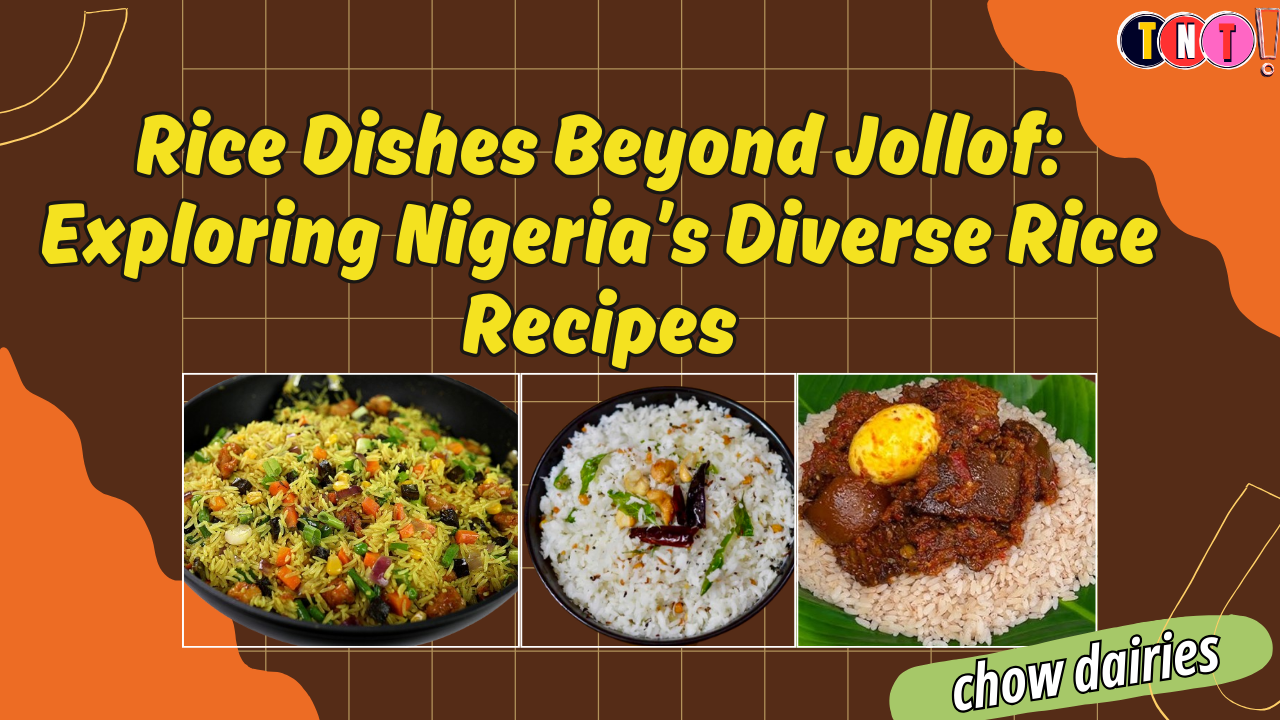Staying fit and healthy the Nigerian way is very possible, maintaining a healthy lifestyle can be challenging, especially when balancing traditional Nigerian cuisine and a busy lifestyle. But the good news is that you can stay fit, lose weight, and improve your health without giving up your favorite Nigerian dishes.

In this article, we’ll explore proven methods, tips, and strategies that blend Nigerian culture with fitness goals. Let’s dive into how you can embrace a healthy Nigerian lifestyle with ease!
Eat Local, Eat Healthy: Nigerian Foods for Optimal Nutrition
The Nigerian diet is rich in natural and nutrient-dense ingredients. The secret lies in knowing what to eat and how to prepare your meals.
- Incorporate Whole Grains: Swap white rice for ofada rice, a local Nigerian variety that’s packed with fiber and helps control blood sugar levels. Also, consider using guinea corn, millet, and acha (fonio) as part of your meals.
- Add More Leafy Greens: Vegetables like fluted pumpkin leaves (ugu), spinach, and bitter leaf are rich in iron, vitamins, and antioxidants. They can be incorporated into soups, stews, or even used as sides for your main dishes.
- Protein-Packed Foods: Add protein sources like moin-moin, beans, or grilled fish to your diet. These foods help build muscle and keep you fuller for longer.
- Healthy Fats from Nigerian Staples: Use palm oil and groundnut oil in moderation. Palm oil, in particular, contains heart-healthy nutrients like tocotrienols (a form of vitamin E) but should be used sparingly due to its high calorie content.
Portion Control: Mastering the Art of Nigerian Meals
Nigerian meals are delicious, but they can easily become calorie traps if not managed properly. Instead of completely avoiding high-calorie favorites, practice portion control. Here’s how:
- Use Smaller Plates: Serving meals on smaller plates tricks your brain into thinking you’ve eaten more than you have.
- Avoid Overloading on Carbs: Nigerian dishes are often carbohydrate-heavy (think eba, pounded yam, and rice). Instead of loading up on just one type of carb, opt for a balance—pair smaller portions of yam or rice with larger servings of vegetables and lean proteins.
- Mind Your Soups and Stews: Nigerian soups are usually rich and can be packed with calories, especially when laden with palm oil and meat. Cut down on the oil and use lean cuts of meat to reduce overall fat content.
Make Fitness a Lifestyle: Exercise the Nigerian Way
You don’t need a fancy gym membership to stay active. Here’s how you can incorporate exercise into your everyday Nigerian lifestyle:
- Take Advantage of Dance Workouts: Nigerian music is upbeat and rhythmic, making it perfect for dance workouts. Zanku, Shaku Shaku, and other dance moves can be an enjoyable way to get your cardio in.
- Incorporate Traditional Workouts: Think of the exercises you see during cultural festivals—jumping, squatting, and dance routines. These movements build strength and improve stamina.
- Daily Walks and Errands: Walking is a simple but effective way to stay fit. Try to take brisk walks around your neighborhood, and if you can, opt for walking or cycling for short errands instead of driving.
Stay Hydrated: Drinking the Nigerian Way
The hot Nigerian climate demands proper hydration, but sugary drinks like soft drinks and fruit juices are often the go-to. Instead:
- Choose Zobo Over Soda: Zobo (hibiscus tea) is a great alternative if prepared without excess sugar. It’s hydrating and rich in antioxidants.
- Go for Coconut Water: Fresh coconut water is a natural electrolyte that can replenish your body after a workout.
- Sip on Watermelon Juice: If you crave a sweet drink, blend watermelon for a refreshing and hydrating alternative to processed juices.
Avoid Common Nigerian Health Pitfalls: Smart Tips
Staying fit in Nigeria can come with unique challenges. Here’s how to overcome them:
- Minimize Fried Foods: Suya, akara, and puff-puff are delicious but can quickly add excess calories to your diet. Limit your intake, or opt for grilling and baking instead.
- Watch Out for Hidden Calories: Be mindful of foods like groundnut paste, coconut rice, or efo riro, which can have hidden calories from oil and condiments.
- Say No to Late-Night Eating: Nigerian culture often revolves around late-night socializing, but eating heavy meals at night can disrupt your metabolism. Try to eat lighter dinners, like pepper soup or salads, before 7 pm.
The Power of Nigerian Herbs and Spices: Flavorful and Healthy
Nigerian herbs and spices do more than just add flavor; they have unique health benefits that can support your fitness journey.
- Ginger and Garlic: These spices boost metabolism and support immune health. Add them to your soups and stews for an extra kick.
- Uziza Leaves: Known for aiding digestion, uziza can be a great addition to your pepper soup or vegetable dishes.
- Scent Leaf (Efirin): This herb has anti-inflammatory properties and can enhance the flavor of your stews while promoting gut health.
Create a Sustainable Routine: Consistency Over Perfection
The Nigerian way of staying fit isn’t about strict diets or punishing workouts—it’s about balance, enjoyment, and sustainability. Focus on developing healthy habits that you can stick to for the long haul:
- Set Realistic Goals: Start small. Aim for a balanced diet and at least 30 minutes of exercise daily.
- Find a Support System: Engage friends and family in your fitness journey. Go for walks together, try new healthy recipes, or have a dance-off at home.
- Be Patient and Persistent: Changes take time. Celebrate small victories and stay consistent.
Wrapping It Up: Embrace the Nigerian Healthy Lifestyle
Staying fit and healthy the Nigerian way is not only achievable but also enjoyable. By incorporating local foods, embracing cultural exercises, and making small but significant lifestyle adjustments, you can reach your health goals without feeling deprived. Remember, it’s all about making healthier choices, one meal and one workout at a time.
So, are you ready to start your journey to fitness, the Nigerian way? Let’s go!



